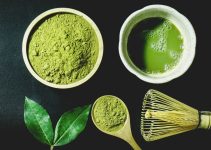Diet sodas have become popular since they first came out on the market. They taste like regular soda but they have less calories to none. However, what people thought as something that would be beneficial to health can actually be linked to an increased risk of dementia and stroke, according to a new study.
The study involved 2,888 individuals who were at the age of 45 and over to track for the development of a stroke and 1,484 participants age 60 and older for development of dementia over a 10 year period. The participants in the Framingham Heart Study had blood tests done since the 1970s.

The results of the study revealed that those who reported to have consumed at least one artificially sweetened drink daily compared to those who drink less than one a week were actually 2.96 times more likely to have ischemic stroke, caused by vessel blockage and were 2.89 time more likely to be diagnosed with dementia due to Alzheimer’s disease. And while the study links consumption of diet soda to these diseases, a parallel study did not find an association with stroke or dementia.
The American Heart Association as well made a commentary that the study involved mostly “white” participants who are actually may have a preference for the “healthier” option and that an observational study like this cannot prove that drinking diet sodas directly cause strokes or dementia but it shows an intriguing trend that needs to be studied further.
The participants consumed artificial sweeteners like saccharin, acesulfame-K, and aspartame. The study also mentioned the approval by the FDA of other sweeteners like sucralose, neotame and stevia.
The researchers also adjusted for variables such as age, sex, caloric intake, diet quality, physical activity and smoking.
On a final note, Professor Rachel K. Johnson from the University of Vermont said to be cautious in the interpretation of the results of the study. Johnson said it doesn’t prove cause and effect. Her conclusion is to not switch to sugary drinks, which was also the opinion of Christopher Gardner, director of Nutrition Studies at the Stanford Prevention Research Center, who said to consume more water instead of diet soda and that diet soda is not considered a health food.





